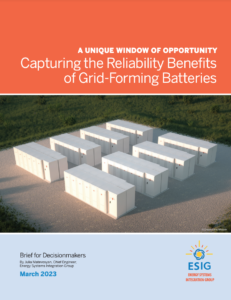
Powering Assurance: Grid Reliability for Uninterrupted Living
Ensuring a reliable power grid is essential for the uninterrupted functioning of homes and communities. This article delves into the significance of grid reliability, the benefits it brings to households, and the measures taken to enhance and maintain a dependable power supply.
The Importance of Grid Reliability
Grid reliability is the backbone of a modern society’s energy infrastructure. It refers to the consistent and secure delivery of electricity to homes, businesses, and institutions. Reliability ensures that power is available whenever needed, minimizing disruptions and supporting the seamless operation of essential services.
Uninterrupted Power Supply for Homes
One of the primary benefits of grid reliability is the assurance of an uninterrupted power supply for homes. Reliable electricity is crucial for daily activities, providing lighting, heating, cooling, and the power needed for various appliances. A stable power grid ensures that households can function smoothly without the inconvenience of frequent outages.
Supporting Business and Economic Stability
Grid reliability is equally vital for businesses and economic stability. Industries, offices, and commercial establishments rely on a continuous power supply to operate machinery, computer systems, and other essential equipment. A reliable power grid contributes to economic productivity by minimizing downtime and disruptions in business operations.
Emergency Preparedness and Resilience
A reliable power grid is a cornerstone of emergency preparedness and resilience. During natural disasters, such as hurricanes or severe storms, having a robust power grid ensures that essential services like hospitals, emergency response units, and evacuation centers can operate without interruption. It plays a crucial role in supporting communities during times of crisis.
Technological Advances for Grid Enhancement
Advancements in technology play a pivotal role in enhancing grid reliability. Smart grid technologies, sensors, and monitoring systems enable utilities to detect and address issues proactively. These technological solutions help in identifying potential problems before they escalate, improving the overall resilience of the power grid.
Grid Modernization and Decentralization
Grid modernization involves upgrading and adapting the power grid to meet current and future demands. This includes integrating renewable energy sources, enhancing transmission and distribution infrastructure, and embracing decentralized energy solutions. Modernized grids are more adaptable, efficient, and capable of accommodating a diverse energy landscape.
Renewable Energy Integration
The integration of renewable energy sources contributes to grid reliability and sustainability. By diversifying the energy mix and incorporating sources like solar and wind, the power grid becomes more resilient to fluctuations and disruptions. Renewable energy also reduces dependence on traditional, finite resources, promoting a cleaner and more sustainable energy future.
Investment in Infrastructure for Long-Term Reliability
Long-term grid reliability requires consistent investment in infrastructure. Upgrading and maintaining transmission lines, substations, and other critical components ensure that the power grid can handle increasing demands and evolving technologies. Adequate investment is essential for sustaining reliability in the face of changing energy landscapes.
Grid Reliability Benefit for Communities
The benefits of grid reliability extend beyond individual households. Communities thrive when they can rely on a stable power supply. Educational institutions, public services, and recreational facilities all depend on a consistent power grid to function effectively. Grid reliability contributes to the overall well-being and development of communities.
Visit Grid Reliability Benefit for Expert Insights
For expert insights on the significance of grid reliability and ways to enhance it, visit Grid Reliability Benefit. Explore resources, gain knowledge, and discover how prioritizing grid reliability benefits individuals, businesses, and entire communities.
In conclusion, grid reliability is a fundamental aspect of modern living, impacting homes, businesses, and communities alike. As technology continues to evolve, ensuring a reliable and resilient power grid becomes paramount for sustaining a high quality of life and fostering economic growth.
